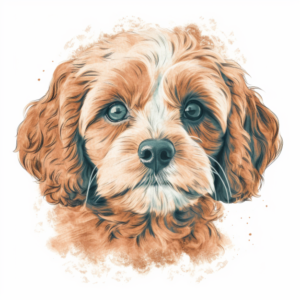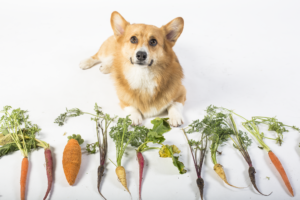As your puppy reaches the 4 to 6-month mark, they continue to grow and mature both physically and mentally. This stage of their development is crucial for building a strong foundation of training, socialization, and overall well-being. Here are the key aspects of what your 4 to 6-month-old puppy should be doing and learning during this stage.

1. Advanced Training and Commands
At this stage, your puppy should have a good grasp of basic commands such as “sit,” “stay,” and “come.” It’s time to advance their training and introduce more complex commands. Teach them commands like “lie down,” “leave it,” and “heel.” Focus on reinforcing their understanding and response to commands through positive reinforcement techniques such as treats and praise.
2. Reinforcing Obedience and Recall
Continue reinforcing obedience and recall training with your puppy. Practice commands in various environments and with increasing distractions. Reinforce their response to your cues and commands, ensuring they consistently obey and come to you when called. This strengthens their understanding of boundaries and reinforces their trust in you as their leader.
3. Continued Socialization
Socialization remains a vital aspect of your puppy’s development during this stage. Expose them to various environments, people, and animals in a controlled and positive manner. Encourage positive interactions with unfamiliar individuals and provide opportunities for them to interact with other well-socialized dogs. This helps them develop confidence, adaptability, and good social skills.
4. Canine Etiquette and Manners
Teach your puppy proper canine etiquette and manners. This includes discouraging jumping on people, biting or nipping during play, and excessive barking. Use positive reinforcement to reward calm and polite behavior, and redirect their attention to appropriate toys or activities when they display undesirable behavior.
5. Increasing Exercise and Physical Activity
As your puppy grows, their energy levels increase, requiring more physical activity. Provide them with regular opportunities for exercise through daily walks, play sessions, and interactive games. Engage them in activities that suit their breed and energy level to keep them physically fit and mentally stimulated.
6. Mental Stimulation and Enrichment
In addition to physical exercise, it’s important to provide mental stimulation and enrichment for your growing puppy. Use puzzle toys, treat-dispensing toys, and interactive games to challenge their problem-solving skills and keep their minds active. Mental stimulation helps prevent boredom and destructive behaviors caused by excess energy.
7. Dental Care and Teething
During this stage, your puppy will continue to teethe and experience discomfort as new teeth erupt. Provide appropriate chew toys and dental chews to soothe their gums and encourage healthy chewing habits. Regularly brush their teeth using a dog-friendly toothbrush and toothpaste to maintain their dental hygiene.
8. Nutrition and Feeding Guidelines
Ensure your puppy is receiving a balanced and nutritious diet appropriate for their age and breed. Consult with your veterinarian to determine the best feeding guidelines and portion sizes for your puppy. Monitor their weight and adjust their diet accordingly to maintain a healthy body condition.
9. Consistent Healthcare and Vet Check-ups
Continue with regular healthcare and veterinary check-ups for your puppy. Schedule vaccinations, boosters, and preventive treatments as recommended by your veterinarian. Regular check-ups help monitor your puppy’s overall health and address any concerns or issues promptly.
10. Building a Lifelong Bond
This stage of your puppy’s development is an excellent opportunity to strengthen the bond between you and your furry companion. Spend quality time together, engaging in activities that promote trust, love, and companionship. Continue positive reinforcement-based training methods, ensuring your puppy feels safe, loved, and understood.
Browse our website for more awesome information!
The 4 to 6-month stage is a critical period for your puppy’s growth and development. By focusing on advanced training, reinforcing obedience, continuing socialization, teaching proper manners, providing physical exercise and mental stimulation, addressing dental care, following appropriate nutrition guidelines, maintaining consistent healthcare, and building a lifelong bond, you are setting your puppy up for a happy and well-adjusted adulthood. Cherish this time with your growing puppy and enjoy watching them thrive.
As an Amazon Associate we earn from qualifying purchases through some links in our articles.




